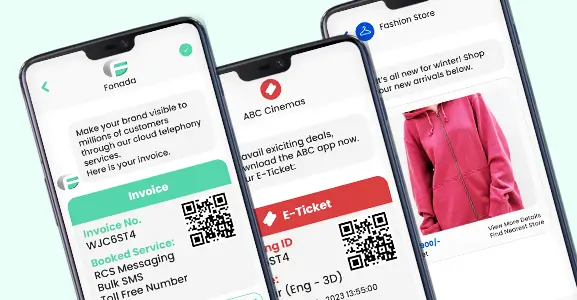Hey there, young minds! Have you ever wondered how IP telephony works and transforms our traditional way of connectivity? In the mystical realm of communication, we were once limited to the regular telephone that uses landlines to transmit analog signals. Internet telephony refers to today’s advanced phone systems that utilize an internet connection to send and receive voice data packets for real-time communication between two entities. IP phone solutions function well under certain environments, which include routers and modems.
An epoch-defining moment arrived in 1995 when the first publicly available IP phone graced the market. In its initial phase, IP telephony was not as good as today’s systems compared to the current phone system. It was expensive and unable to process clear voices at both ends. But today, technological advancements have made this technology highly affordable to the masses and help businesses to leverage high-end features at the most cost-efficient price.
This blog post will discuss IP telephony, its working functionality, and how it could help businesses grow.
Let’s Get Started…
What Is IP Telephony?
IP Telephony, also known as Voice over Internet Protocol (VoIP), is an IP based technology that allows voice communication over the Internet. It converts analog voice signals into digital data packets transmitted over IP networks. Internet Protocol Telephony offers businesses and individuals cost-effective, scalable, and feature-enriched communication solutions.
In the past, phone calls used to transmit through regular phone lines. But with IP Telephony, these calls are sent as small packets of data over a computer network like the internet or a local network. It’s like sending messages in small pieces instead of using traditional phone lines. Internet telephony offers hosted VoIP solutions that let businesses use advanced PBX features without on-site hardware installation. Technology acts as a boon for cloud call centers and helps them to streamline their communication in the business environment.
Working Functionality Of VoIP System
You can also use SIP trunking to connect a legacy IP PBX to a modern VoIP provider to take advantage of missing features.
- With hosted VoIP, your Internet Protocol phone sends digital data over the internet to your provider.
- Your provider handles the routing of calls, call queues, and everything else in the cloud.
- You can also use SIP trunking to connect a legacy IP PBX to a modern VoIP provider.
- This IP based technology allows you to take advantage of missing features.
What Are The Benefits Of IP Telephony For Businesses?
IP telephony helps businesses expand rapidly with the support of advanced telephony features such as advanced call routing, auto attendant, call queue, call pop, call recording, etc. These features enable businesses to streamline the functionality of their operations and make them scalable.
Key Benefits Of Switching To IP Telephony Are Mentioned Below:
IP telephony, also known as Voice over Internet Protocol (VoIP), offers several benefits, making it a popular choice for modern communication systems. Here are some of the key advantages:
-
Cost-Saving
VoIP is cheaper and highly affordable than traditional plans. With these plans, businesses can save up to 60% compared to landlines. Operating business communication using internet telephony is easy and convenient for businesses as it does not require any additional setup costs and work seamlessly with their existing CRM or applications
-
Mobility & Flexibility
The global pandemic has introduced us to a new way of working methodology called remote working. This IP based technology provides a flexible working environment and allows your teams to easily set up and use their phone service from anywhere, making it easy to adapt to changing work environments.
-
Unified Communications
IP telephones are widely used because of their offerings, such as reliable connectivity and the capability of transmitting voice data over the Internet. The popularity of internet telephony has led to the development of Unified Communications (UC), which combines various communication functions like voice calls, video conferencing, automatic call distribution etc in a single platform and helps businesses grow exponentially.
-
Scalability
By opting for IP Telephony instead of analog telephony, you can say goodbye to the hassle of paying for additional phone lines. Unlike traditional landline services that charge for each line, IP Telephony offers greater flexibility and its services are quite pocket friendly. You can effortlessly add or remove lines as needed, enabling seamless scalability for your business.
In summary, Internet Protocol telephony offers cost savings, flexibility, and a wide range of features that can enhance communication for businesses and individuals. It has become a fundamental technology for modern telecommunication needs.
What Is The Difference Between VoIP And IP Telephony?
The key differences that separate VoIP and IP from each other are inked below:
VoIP (Voice over Internet Protocol)
- VoIP converts analog audio signals into digital data packets
- VoIP works on an IP-based network and transmits voice calls over the internet
- For smooth functioning, VoIP requires a stable and strong internet connection linked with appropriate devices (computers, smartphones, IP phones) with VoIP software or apps
- It is enriched with features like conference calling, call forwarding, voicemail, etc
- The technology works well with both voice and video communication and offers absolute solutions for voice broadcasting, outbound calling etc
- VoIP is highly affordable compared to traditional phone services.
IP Telephony (Internet Protocol Telephony)
- The reach of IP telephony is much greater than VoIP. It encompasses various communication services using IP networks.
- Voice, video, and other multimedia services can easily be transmitted over IP-based networks without any data failure or integrity challenges
- Users can have the benefits of advanced features like unified communications, integrating voice, video, messaging, and collaboration tools with IP telephony.
IP telephony can be easily integrated with a variety of setups and third-party applications, including remote work environments and hybrid setups.
Features Of IP Telephony
IP telephony enables businesses to access a wide array of functionalities and capabilities, their efficiency in the competitive work environment.
Here are a few notable advantages of an IP phone solutions (IP PBX), among many others:
Crystal Clear HD Voice Quality
IP telephony enables users to experience ‘High Definition’, seamless and crystal-clear sound quality that eliminates background noise.
One Number
By investing in IP technology, users gain the convenience of using a single phone number to make calls from various handsets. IP telephony is one of the most used features of cloud telephony that enables businesses to have advanced call handling capabilities.
Smart Call Routing
Smart Call Routing enables cost-saving by offering optimal call routing features. This guarantees that the system will choose the pre-defined, most economical option call routing path for each external call.
Call Handoff
Call handoff is a convenient feature that enables users to switch seamlessly between devices without any audible disruption. For instance, at the end of their workday, users can effortlessly transition their ongoing call from a desktop (softphone) to their mobile device, allowing them to continue the conversation uninterrupted while shutting down their desktop.
Fixed-Mobile Convergence
It is the most useful feature for roles like sales, client servicing, and support, businesses often require an “always on” approach. Fixed Mobile Convergence offers a solution where a mobile phone can serve as an additional hub, providing all the functionalities of the phone system, such as call transfer, conference features, and more. This ensures seamless integration and accessibility across devices, enabling efficient communication for these profiles.
VoIP Protocols And Audio Codecs
IP telephony relies on several open-source protocols to facilitate the transfer of data from the phone to the IP telephony service provider.
There are three commonly used protocols in IP telephony:
SIP Protocol
SIP (Session Initiation Protocol) is widely used for establishing, modifying, and terminating communication sessions between devices. It enables functions like call setup, call termination, and call transfer.
H.323 Protocol
H.323 is an ITU (International Telecommunication Union) standard that facilitates multimedia communication over IP networks. It has other protocols that participate in audio, video, and data transmission.
RTP/RTCP Protocols
RTP (Real-time Transport Protocol) and RTCP (Real-time Transport Control Protocol) are popularly known for working together in IP networks. These protocols are responsible for transporting real-time audio and video data over IP networks. RTP handles the actual data transmission, while RTCP provides control and feedback mechanisms for quality monitoring.
Configuration of your phone system and the VoIP service provider decide the use of specific protocols for your communication needs. To effectively transmit voice data over the Internet, we need to use compression and decompression methods.
Final Thoughts
IP telephony has eliminated our dependencies on traditional phone lines and enables us to use advanced features for streamlined business communication. As technology grows, IP telephony will evolve further, providing even more innovative solutions for our communication needs. Adoption of IP telephony can increase productivity, improve customer experience, boost outbound call strategy for businesses to create a more connected business environment.
FAQs
IP telephony enables communication carried over the Internet in the form of audio and video. It allows users to make and receive calls using IP (Internet Protocol) networks instead of traditional telephone lines.
Skype, WhatsApp calls, Cisco Unified Communications, Zoom, Microsoft Teams, etc. are perfect examples of IP telephony that enables businesses and individuals to communicate flawlessly over the web.
VoIP (Voice over Internet Protocol) technology is used to transmit voice calls over IP networks, while telephony includes a broader concept of voice communication that includes both traditional and IP-based systems.
IP phones are used for various reasons. They leverage IP networks to transmit voice calls, offering cost savings, flexibility, advanced features, scalability, integration with digital technologies, and improved collaboration and communication capabilities.
Internet telephony is all about the transmission of voice and multimedia communications over the Internet. It enables users to make phone calls and participate in video conferencing using IP-based networks instead of traditional phone lines.

Dec 11, 2024
Top Contact Center Optimization Tools For 2024
“A thriving business knows how to fetch maximum output from limited resources by optimizing ca... Read More
Nov 13, 2024
What Is Brand Communication? CPaaS Role Explained
Did you ever wonder why some advertisements grab your attention instantly, while others do not? The... Read More
Nov 01, 2024
What Is Automated Messaging And How Does It Work?
Automated messaging or text automation empowers businesses and marketing professionals to connect wi... Read MoreLatest Updates
From Fonada
Industry Insights, Trends, Innovations, Updates, and Case Studies from Industry Experts
View
Customer
Reviews
Discover why our customers love us - read their authentic and heartfelt reviews!
View
Case
Studies
Explore real-life scenarios, offering analysis, and solutions to practical challenges
View
Convert Leads Into Sales With Fonada
Trusted CPaaS Solution Provider








